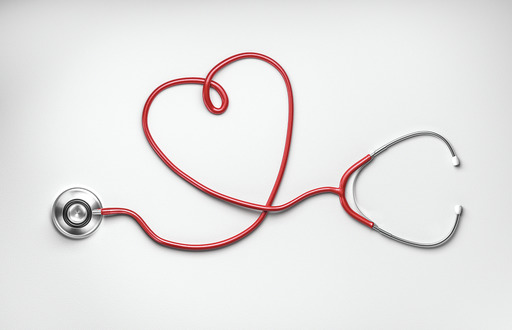Adam Prudhomme
Editor
As more research was conducted on the COVID-19 virus over the last year, scientists noticed a very troubling trend: the virus is more than just a threat to the respiratory system.
While its most well known symptom is shortness of breath, research shows it has the potential to cause long-term damage throughout the body, particularly the heart. With February being Heart and Stroke Foundation of Canada’s annual Heart Month campaign, the non-profit is using this time to warn Canadians about some of the lesser-known dangers of the virus and how to prevent them.
“It’s a very tricky virus,” said Dr. Patrice Lindsay, director of health systems change with the Heart and Stroke Foundation of Canada. “It’s pretty aggressive. One of the things we learned early on is it causes an inflammatory response. It causes inflammation in different parts of the body in different tissues. That causes stress on your heart. This virus compromises breathing in your lungs and it leads to decreased oxygen levels.”
Doctors have noted several cases in which a patient with no previous history has developed heart disease following a bout with COVID-19.
“Decreased oxygen is one issue but the inflammation itself can affect your blood pressure,” said Lindsay. “We’ve actually seen people’s blood pressure dropping and lower blood pressure reduces how much oxygen is getting circulated through your body and also your heart has to work harder. When your body is under stress, your heart has to work harder, especially if there’s inflammation, your body has to fight against that to get all the blood to where it needs to be. That extra stress on your heart is why we’re seeing more heart issues.”
Those with pre-existing heart conditions are at risk of developing complications due to COVID-19. Lindsay says the trend is to see heart diseases to develop sooner and stronger following a COVID-19 infection.
That a respiratory disease could lead to complications of the heart isn’t particularly shocking to those in the medical field.
“We’ve been positioning it at Heart and Stroke for a few years now as the heart-brain connection,” said Lindsay. “They are connected. There’s not a separate system of blood vessels in your brain, they all have connections somewhere. What affects one does affect the other. When you have your heart working harder and decreased oxygen, that’s decreased oxygen to your brain or the inflammation, there’s inflammation potentially in the brain and we’re seeing some of the data start to indicate that. It’s putting you at higher risk of potential stroke. Something people don’t really think about is vascular dementia. What compromises your brain also leads to issues with cognition, thinking, planning and memory. They’re all very much interconnected.”
Prevention is key says Lindsay. That means people of all ages and all levels of health should take steps to prevent contracting COVID-19 and follow Public Health guidelines.
The same goes for prevention of heart disease and stroke. Though the pandemic can make it more challenging to do so, Lindsay says it’s important to stay active.
“Bundle up and go around the block and do a 10-15 minute walk,” said Lindsay. “If you do that every day it’s an amazing step. People don’t realize how much exercise really helps all of your body. It helps your blood pressure, it helps your heart and your brain function, it helps with your cognition. Do it safely, don’t stop and chat within two feet of your neighbours but get out and carry a mask with you and wear it or keep it handy so if others are on the path or wherever you’re walking and the potential is to get close, where your mask. And in this weather it helps to keep your face warmer.”
For those working from home, Lindsay suggests to take breaks and remember to get up from the desk and go for a walk. Keeping a routine is critical as well to help maintain a healthy sleep schedule. She says many of her patients have found it helpful to start the day by leaving the house and walking around the block to help create the impression of leaving home and entering an office. With so many meetings going virtual, Lindsay suggests finding time to turn off the camera and getting up to stretch and unlock hip, leg and stomach muscles.
While staying home whenever possible is recommended during the lockdown, Lindsay urges not to let that get in the way of seeking urgent medical care when needed.
“If people are having sudden onset chest pain or new symptoms, especially people that have had heart failure and they’re having new symptoms, please don’t wait to go to the hospital,” said Lindsay. “People are afraid to go to hospitals but if they’re having new onset symptoms of a heart attack or stroke, it is critical that you call 9-1-1 or you get yourself to a hospital and don’t hesitate. I know people are afraid of that right now, but your outcomes will be so much worse if you don’t get medical attention right when you need it.”
Following those steps, as well as maintaining a healthy diet, could have a huge positive impact in reducing the risk of first contracting COVID-19 or at the very least minimizing the harm it can cause.

